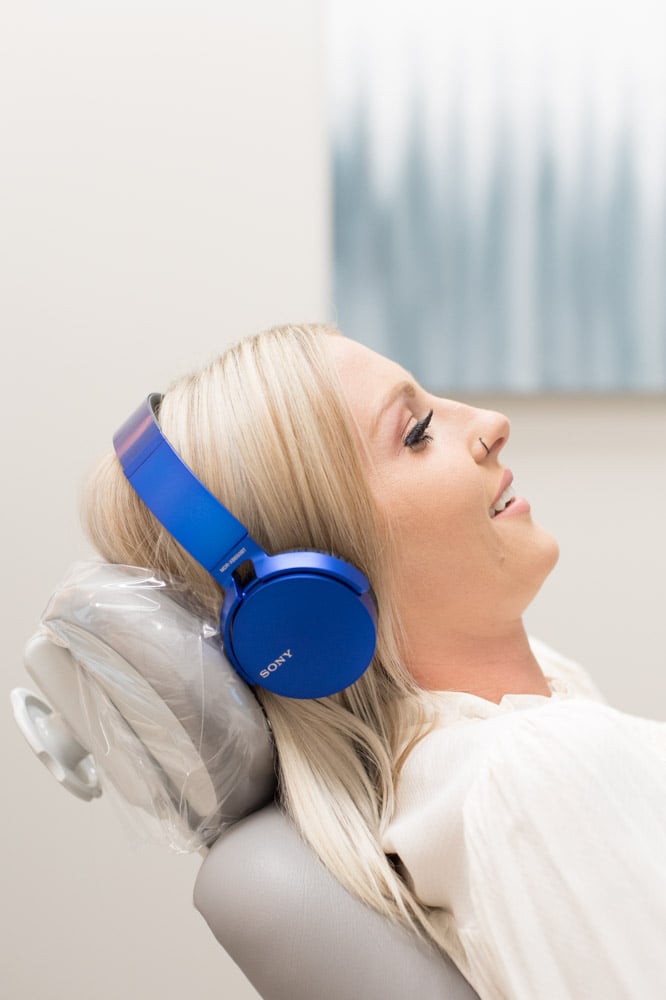Dealing with tooth sensitivity—also known as dentinal hypersensitivity—can be a real challenge. Whether it’s that sharp zing of pain when you sip a hot drink or a twinge when you enjoy something cold, sensitivity can make eating and drinking uncomfortable.
At Thrive Dental & Orthodontics, we want you to enjoy life without worrying about dental discomfort. Let’s dive into why tooth sensitivity happens, what you can do to manage it, and when it’s time to see your dentist for relief.
Why Does Tooth Sensitivity Happen?
Tooth sensitivity occurs when the protective layer of enamel on your teeth wears down or your gums recede, exposing the underlying dentine. This dentine contains tiny tubules that lead to the nerve center of your tooth. When exposed, these tubules let hot, cold, acidic, or sweet substances reach the nerve, causing that familiar discomfort.
Common causes of tooth sensitivity include:
- Worn enamel from aggressive brushing or acidic foods
- Gum recession due to gum disease or aging
- Teeth grinding (bruxism) that wears down enamel
- Dental erosion from acidic foods and beverages
- Tooth decay or cavities that expose the dentine
7 Ways to Manage Tooth Sensitivity
1. Switch to a Desensitizing Toothpaste
Look for toothpaste specifically formulated for sensitive teeth. These contain ingredients like potassium nitrate or stannous fluoride that help block the pain signals from the dentine tubules to the nerve.
Tip: Use the toothpaste consistently—usually for at least two weeks—to feel the full benefits.
2. Brush Gently with a Soft-Bristled Toothbrush
Aggressive brushing can wear down your enamel and worsen gum recession. Choose a soft-bristled toothbrush and use gentle, circular motions when brushing.
Tip: Think of brushing as a gentle massage for your teeth and gums, not a scrubbing session.
3. Limit Acidic Foods and Beverages
Acidic foods and drinks—like citrus fruits, sodas, and sports drinks—can erode enamel over time. If you do enjoy them, rinse your mouth with water afterward and avoid brushing for 30 minutes to let your enamel re-harden.
Tip: Incorporate enamel-strengthening foods like cheese, milk, and leafy greens into your diet.
4. Address Teeth Grinding
If you grind or clench your teeth at night, you’re at risk of wearing down your enamel and increasing sensitivity. Talk to your dentist about getting a custom night guard to protect your teeth while you sleep.
Tip: If you wake up with jaw pain or headaches, you might be grinding without realizing it.
5. Strengthen Your Enamel
Fluoride helps strengthen enamel and reduce sensitivity. Use a fluoride toothpaste and ask your dentist about in-office fluoride treatments if sensitivity persists.
Tip: Some mouthwashes also contain fluoride for added protection.
6. Maintain Good Oral Hygiene
Brush twice a day, floss daily, and keep up with regular dental check-ups. Plaque and tartar can worsen gum recession and sensitivity.
Tip: Regular professional cleanings can remove buildup that at-home care can’t reach.
7. Know When to See Your Dentist
If your tooth sensitivity doesn’t improve with at-home care or worsens over time, it’s time to consult your dentist. Professional treatments can include:
- Fluoride varnishes or gels to strengthen enamel
- Dental sealants to protect exposed dentine
- Gum grafts for severe recession
- Crowns, inlays, or bonding for damaged teeth
- Root canal therapy if the sensitivity is severe or linked to nerve pain
- Treatment of underlying issues like cavities or gum disease
Tip: Never ignore persistent sensitivity—it could be a sign of a more serious dental issue.
Let’s Keep That Smile Healthy and Comfortable
At Thrive Dental & Orthodontics, we’re here to help you enjoy life without worrying about tooth sensitivity. If your teeth are feeling extra sensitive or you’re experiencing pain that won’t go away, it’s time to get checked out.
Book your appointment today and take the first step toward a healthier, happier smile!



